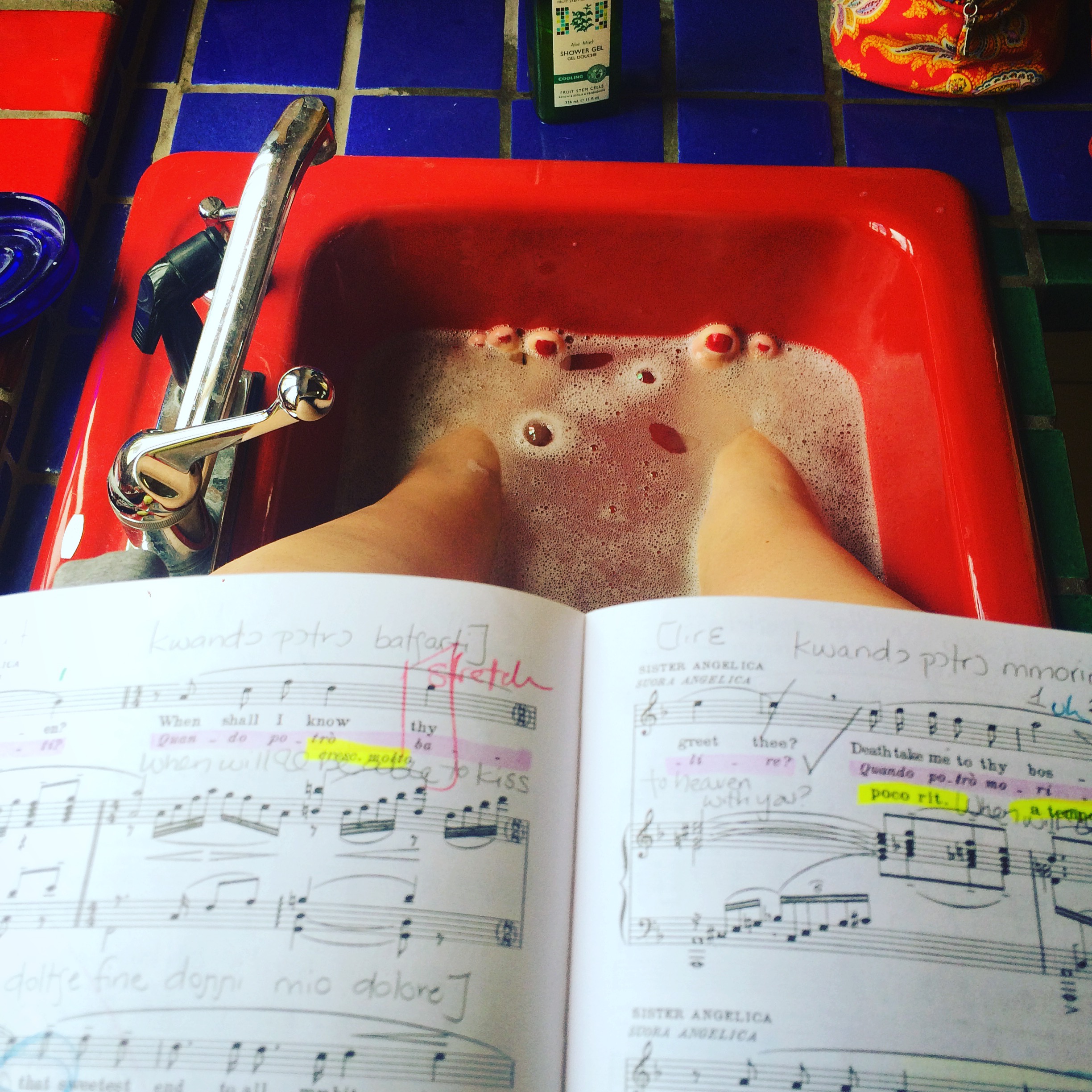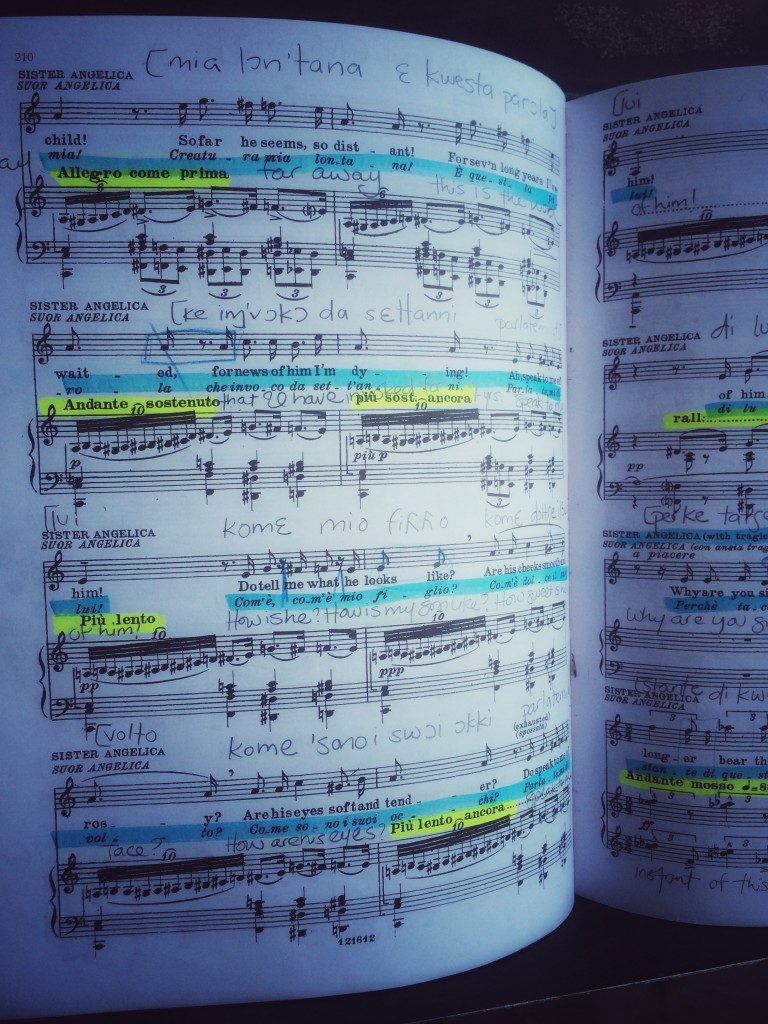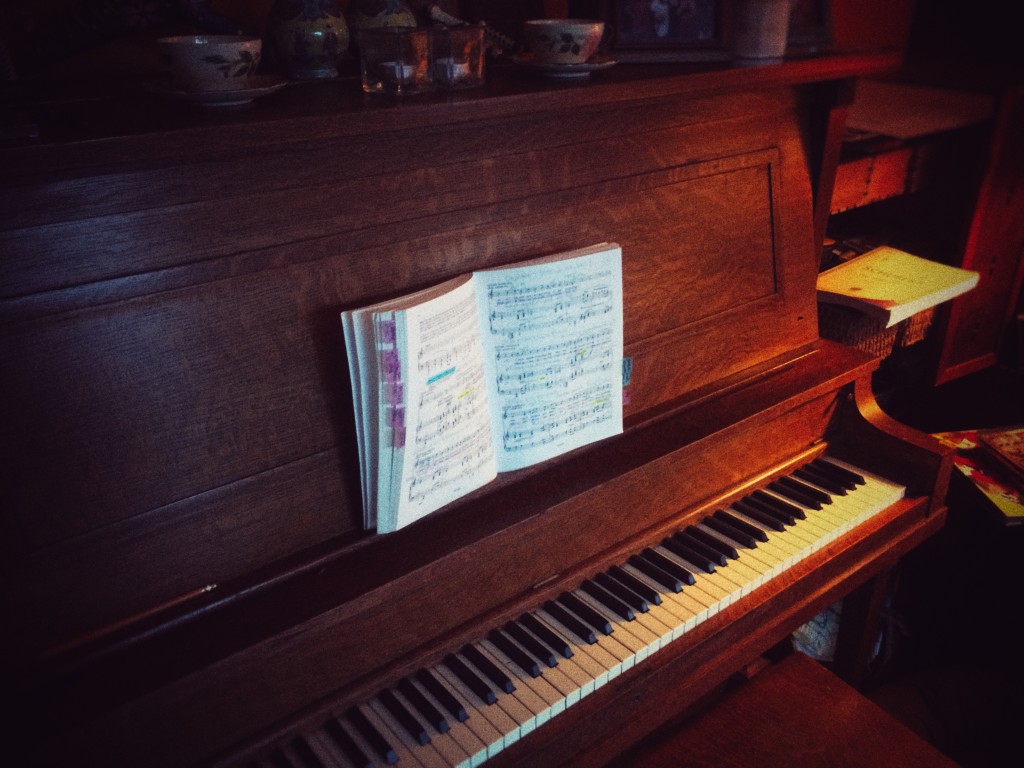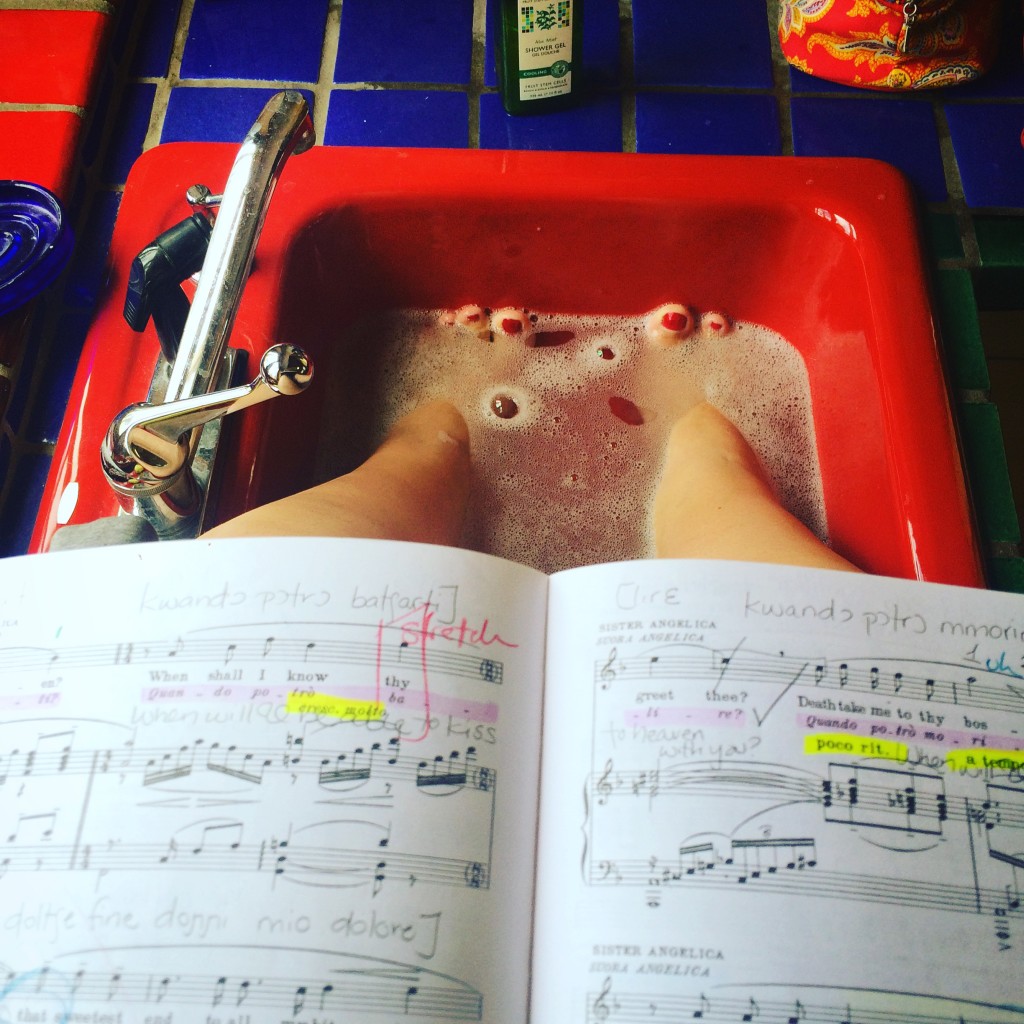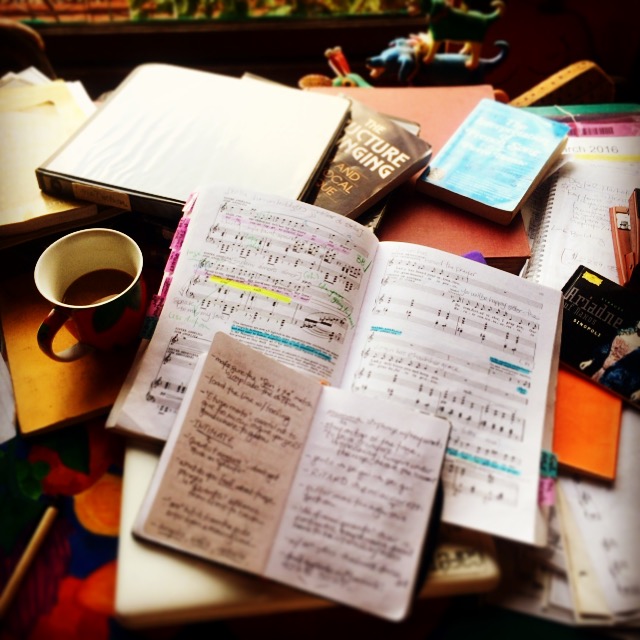It’s been a minute- but it’s time to get back to my blogging ways…
Back in Part One of “Puccini and Italian Opera- Tackling a Role in a Foreign Language” I explored the initial stages of getting an operatic role up and running. It’s been a couple of months and I’ve been moving my way through the various steps. With all my texts and translations complete it was time to start working on the actual music!
(My score with all my diction and rhythmic notations, highlighted and pencilled in.)
The art of learning music… ask 5 different musicians how they learn music and I guarantee you’ll get 5 different answers. Everyone has their system. For me, I’ve learned the line and phrasing of the music has to come from the words- so that is where I begin. I will start by speaking the Italian, with an eye for double consonants (where there is almost a stopped quality to the sound), clarity or purity of vowels (we Americans rarely use ‘pure vowels’, our version [a e i o u] is frequently colored by more than one vowel), as well as the natural cadence of the language. From there I speak in rhythm. Lining up the words with the beats so that the music and words flow together. From there I sit down at my trusty piano to start playing the actual music and line up the two elements. This process can take a while, and much to my chagrin my piano skills are not anything to be excited about… so I suspect it’s a longer process for me than most.
(The piano I grew up playing (kind of!), at my mom’s house.)
Once I’ve got all the words, rhythms, and melodic lines learned, well practiced, and in my body, it’s time to take it to a coach. The concept of a musical coach might be foreign. As singers we have Voice Teachers and they are the ones who help us build our instrument, learn how to best use our body to create a clear, ringing sound. Then we go to Musical Coaches- these are people who listen and help us navigate the music itself. To sing effectively, one must keep a lot of balls in the air (languages, pitches, rhythms, characterization, and more). The coach reminds us of what the music is saying and helps us communicate more effectively what is written on the page. For this stage I was in San Francisco and had the privilege of working with Curt Pajer of the San Francisco Conservatory of Music. We navigated the score together and he taught me ways that I could bring even more life to the music.
(On at HOT summer’s day, taking my score with me and as I soak studying my notes from various coachings.)
Another important aspect of any role are the main “arias” or solos for that given character. These are like the soliloquies or monologues of opera, where a character will temporarily suspend time and explore their inner turmoil or emotions. The audience lives for these arias! These are the songs we are humming as we leave the theatre, and that we recognize in car commercials… these are the “hits” of opera. Therefore as a singer performing a role, you have to make sure that your character’s arias are sparkling! For Suor Angelica it’s the heart breaking “Senza mamma”, which she sings just after having learned her son (who she never got to know) has died. It’s a terrible moment in her life, and Puccini wrote an appropriately simple, yet gut wrenching aria describing how she feels in that moment. Mastering these arias is a crucial part of any opera role.
(My notebook where I’ve outlined and analyzed the emotional arc of Suor Angelica’s, “Senza mamma”.)
The process continues… notice that I haven’t mentioned a single “official” rehearsal yet? This is all the work that happens before one even steps into the rehearsal hall. We’ll get there, I promise! I am learning this role so that I can perform it for La Opera de Tijuana in November of 2015. I will continue to document the process as we start musical and staging rehearsals. ‘Til then…
Keep listening and reading,
Anishka (aka Nishi la Tremenda)
